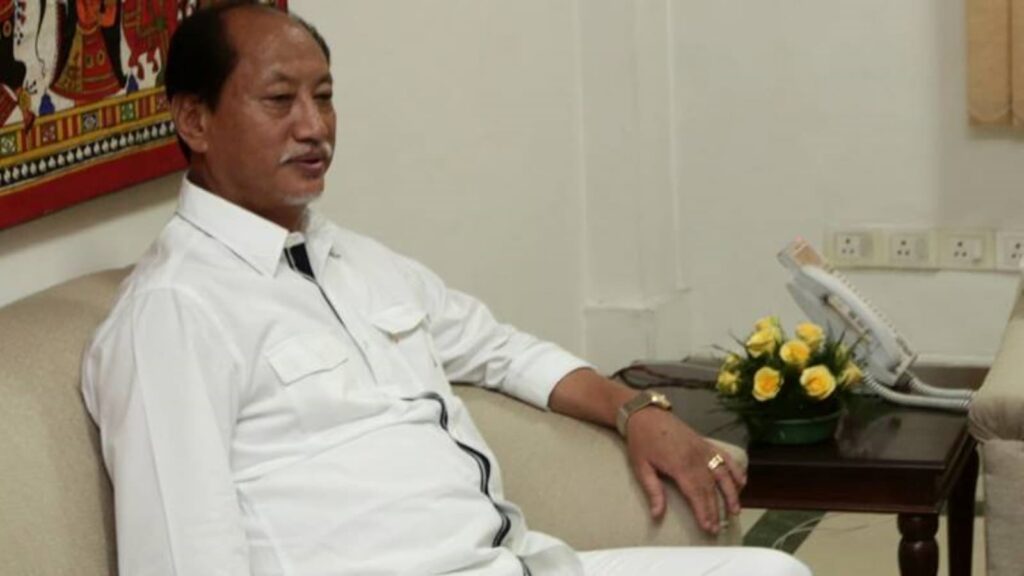GuwahatiAug 7, 2025 21:11 IST
First published on: Aug 7, 2025 at 21:11 IST
As the talks to grant greater autonomy to the six districts of Eastern Nagaland gain pace, the state government has expressed concern about the suggestion to include a new provision in the Constitution for the Frontier Naga Territory, the proposed new political and administrative unit. It would effectively “bifurcate” the state, the government has said.
Following a meeting of the state Cabinet on Wednesday, where the issue was discussed at length, state Minister Kenye said a new Constitutional provision apart from the existing Article 371A, which provides special protections to Nagaland, would be “catastrophic”.
The Cabinet met two weeks after representatives of the Union Ministry of Home Affairs (MHA), the Eastern Nagaland People’s Organisation (ENPO) and the Neiphiu Rio-led state administration met in New Delhi. At the meeting, the MHA directed the state government to clear its stand on some key issues within a fortnight. This was the third tripartite meeting on the issue, while deliberations have largely been ongoing between the Centre and ENPO, which has been leading the demand for statehood for the region for decades.
Claiming that the state government had been “kept in the dark” on the Centre-ENPO deliberations for years, Kenye said the suggestion for a separate provision in the Constitution was brought to the notice of the Nagaland Cabinet only on Wednesday.
Articles 371 and 371A through J provide “special provisions” for specific states to allow certain religious and social groups to exercise autonomy over their affairs without interference from the state and central governments. Article 371A relates to Nagaland and according to the provision, Parliament cannot enact laws that affect the social, religious or customary legal practices of Nagas or the transfer and ownership of land without the concurrence of the Assembly. Mizoram has similar provisions under Article 371G, and Article 371 B and C allow the creation of special committees of representatives from tribal or hill areas in the Assemblies of Assam and Manipur.
Referring to the recommendation as a “matter of major concern”, Kenye said the Cabinet would travel to Delhi to “hear from the horse’s mouth”. “At no point did the Centre indicate such an intention to us. Nor have the ENPO thought that such a thing would be possible … But this is something that just cropped up today (Wednesday) during the discussion and it appears to be an idea mooted by the Centre,” he said.
Kenye added that the state government was made to understand that whatever was being worked out would be under Article 371A. “Today, one corner of our deliberation more or less started implying that there would be a new Article… Assam is (371) B, Manipur is C, Mizoram is D, Sikkim is E, Arunachal is F, H, I, J. Now if they say that this new entity will be under Article 371K, that would mean something outside Article 371A is born… In fact, the state would have nothing to do with it anymore. So before we proceed further, I think there are certain areas that we have to ascertain,” he said.
In 2019, Northeastern states were on the edge after the Centre scrapped Article 370 that granted special status to Jammu and Kashmir.
Saying that the state government was not in favour of Article 371A coming up for scrutiny in Parliament, Kenye said, “Other issues (with regard to autonomy) are minor. Be it judiciary, finance, administration, or legislature, the state has no objection. What the state and the people are concerned about is whether we are going to be bifurcated by way of giving them a new article. Whether 371A is again going to be under the scrutiny of Parliament is what we are apprehensive about.”
During the course of negotiation, the ENPO’s demand for a separate state has evolved into a “special arrangement” called the Frontier Naga Territory within the state. Citing the relative backwardness of the six districts, the demand escalated in 2010 and again flared up ahead of the 2023 Assembly polls, which it had threatened to boycott.
Citing assurance from the MHA that a “mutually agreed upon solution” would be reached and implemented after the election, the ENPO withdrew the boycott call. However, claiming that the state government was stalling the issue, the organisation boycotted last year’s Lok Sabha elections with no voting taking place across the six districts.
ENPO president Chingmak Chang and general secretary Honang Konyak could not be reached for comment.




